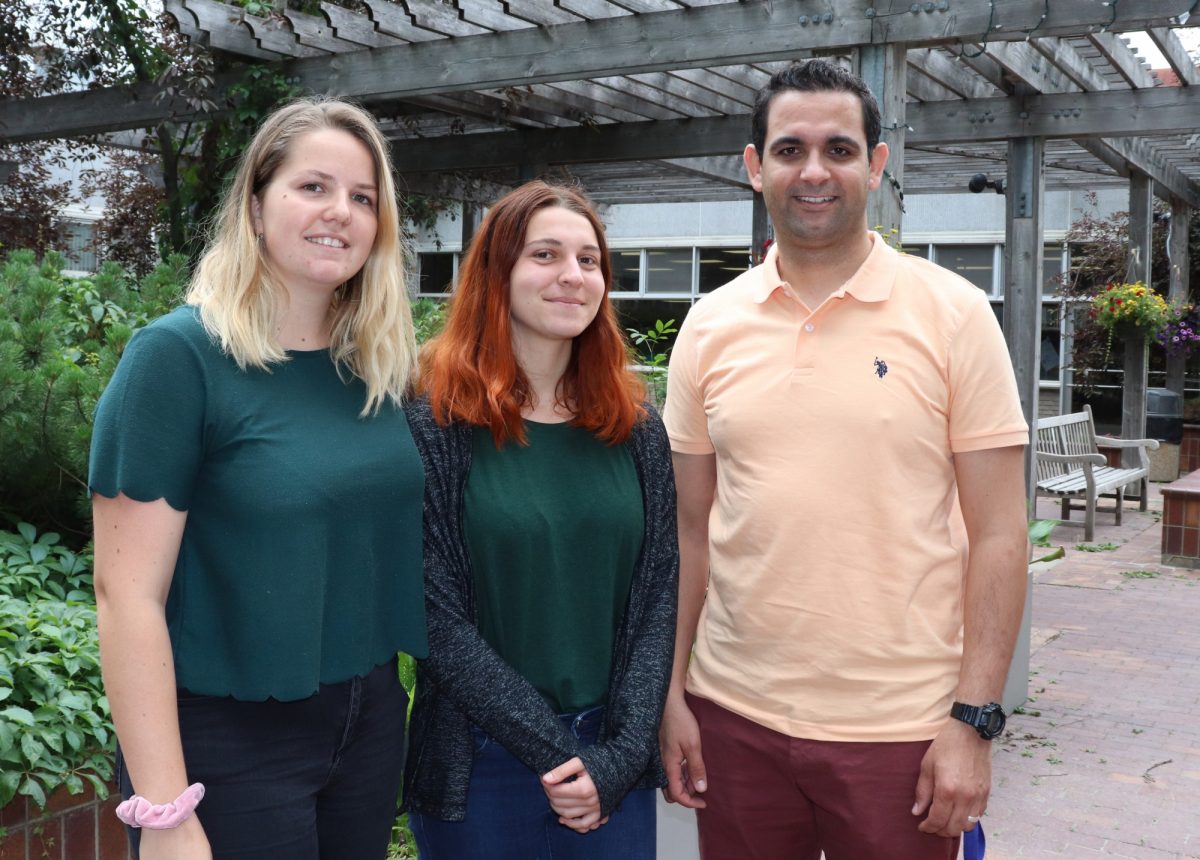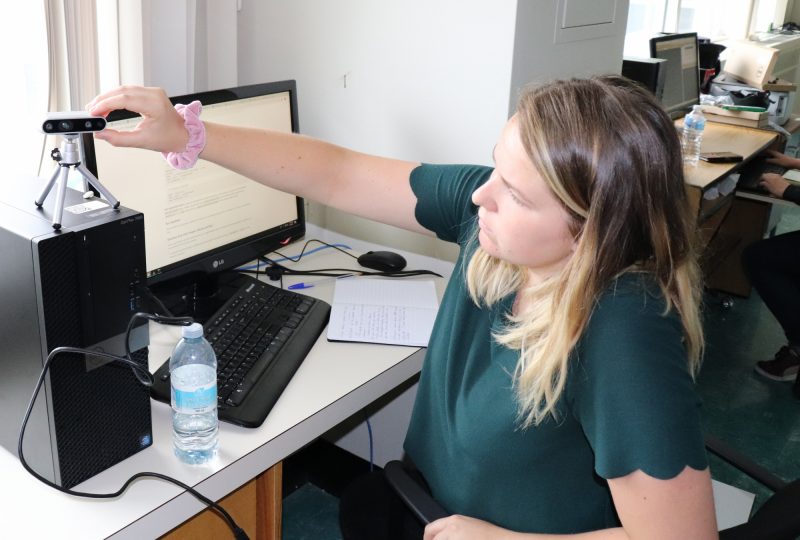
Noémie Laguelle, Camille Sivelle and Dr. Mohamed-Amine Choukou are developing a system that can alert caregivers to dangerous situations involving patients with dementia.
CoRS researcher, interns pilot high-tech safety program for dementia patients
Two engineering students from northeastern France are working at the Rady Faculty of Health Sciences this summer on an innovative research program that aims to benefit the safety of patients with dementia.
Camille Sivelle and Noémie Laguelle, along with fourth-year U of M electrical engineering student Ryan East, are taking part in a summer internship with Dr. Amine Choukou, assistant professor in occupational therapy at the College of Rehabilitation Sciences. The team is developing a system that can alert caregivers to dangerous situations using 3D depth cameras.
“What we are trying to do is take video data and apply pose recognition and object detection algorithms to detect hazardous behaviours of health centre residents,” said Sivelle, 20.
The goal, she said, is a system that would detect an altercation, a person falling or someone being hit by or breaking an object, and then have an alert message sent to caregivers on a mobile device, such as a smartphone, allowing for a quicker response.

Noémie Laguelle works with a 3D depth camera in her team’s lab.
The research team is currently developing a pilot system for Riverview Health Centre, which has residents at various stages of dementia in its personal care home and special needs units. It will be tested in the special needs unit and the facility’s courtyard this summer, as the first stage of a one-year project.
“Riverview is currently undergoing some renovation and wants to intensify the use of technology to increase the residents’ quality of life,” Choukou said. “We don’t know how many cameras will be used yet. We are exploring that right now with the funding that we have and in collaboration with Michele Klassen, a patient care manager at Riverview.”
Because of aggressive and erratic behaviours often associated with dementia, these patients can be a danger to themselves or others around them, Choukou said.
The team noted the number of Canadians with dementia is expected to rise to nearly 1 million by 2031, according to the Alzheimer Society of Canada.
Sivelle and Laguelle said the project is a good fit for them, after they worked on a health-related project through Mines Nancy, one of France’s selective engineering schools.
“We worked with a hospital in the town that we studied in, where there were people who were in serious accidents and had to live with machines that take care of their heart or lungs,” said Laguelle, 21. “There was a lot of noise with these machines, so we implemented a prototype that measured and reduced the surrounding noise.”
Their three-month internship is funded by the University of Lorraine, where they will graduate with master’s degrees next year, and the Grand Est region of France, the region where they study.
“What’s great is that we have our own lab where we all work together, so we can easily discuss and test our ideas about the project, especially about the issues that we can encounter,” Laguelle said.
Laguelle noted this is the first time she has been to Canada. Sivelle has been to Quebec and Ontario, but it is her first time in Manitoba. They both said they are impressed with the Bannatyne campus and its proximity to Health Sciences Centre, as well as the city.
“What strikes me the most is that Winnipeg is really widespread compared to French cities,” she added. “In fact, I just found out it is more than four times the size of Paris, but with less inhabitants. In big cities in France, we live on top of each other and it’s crowded.”






